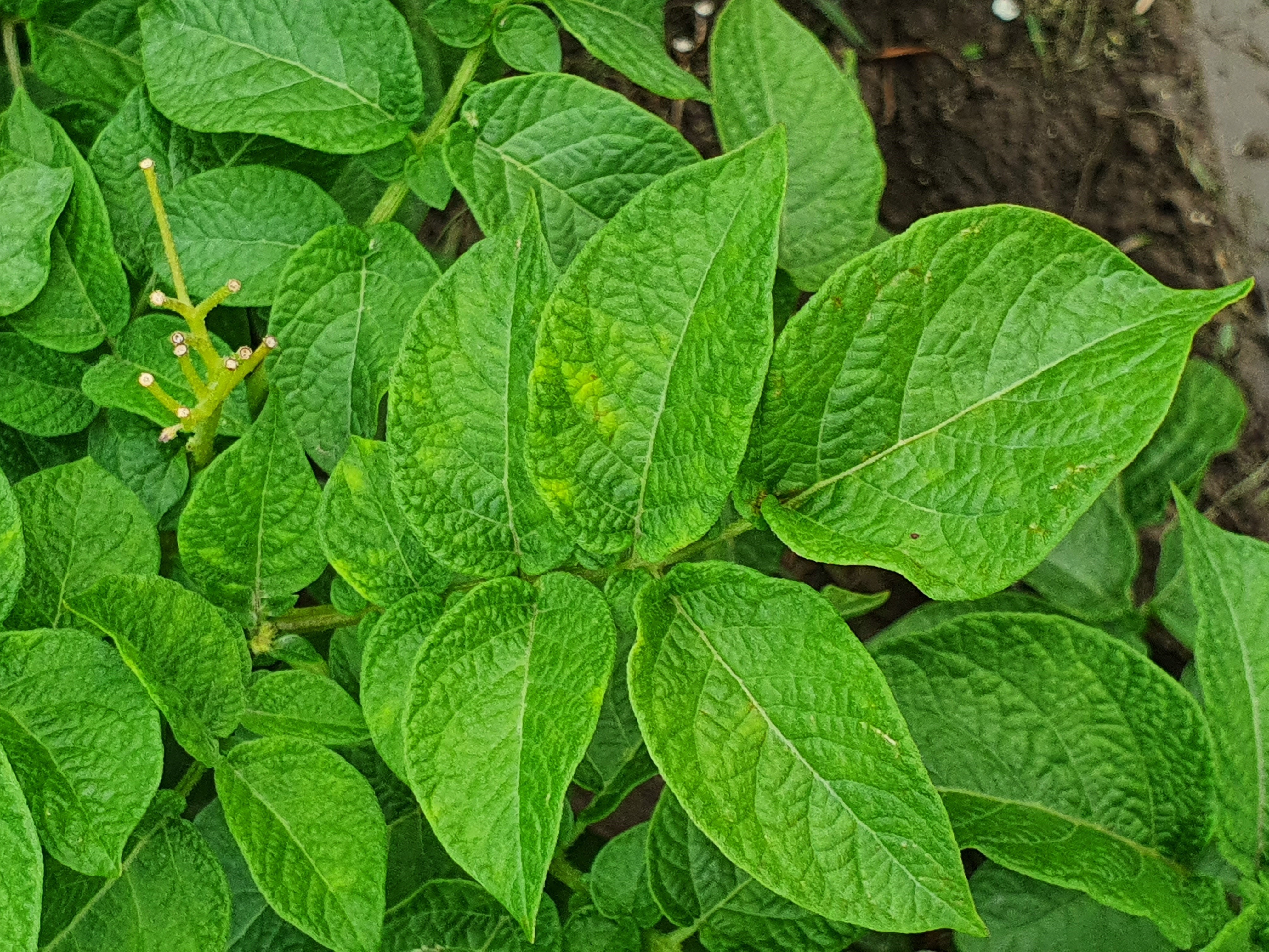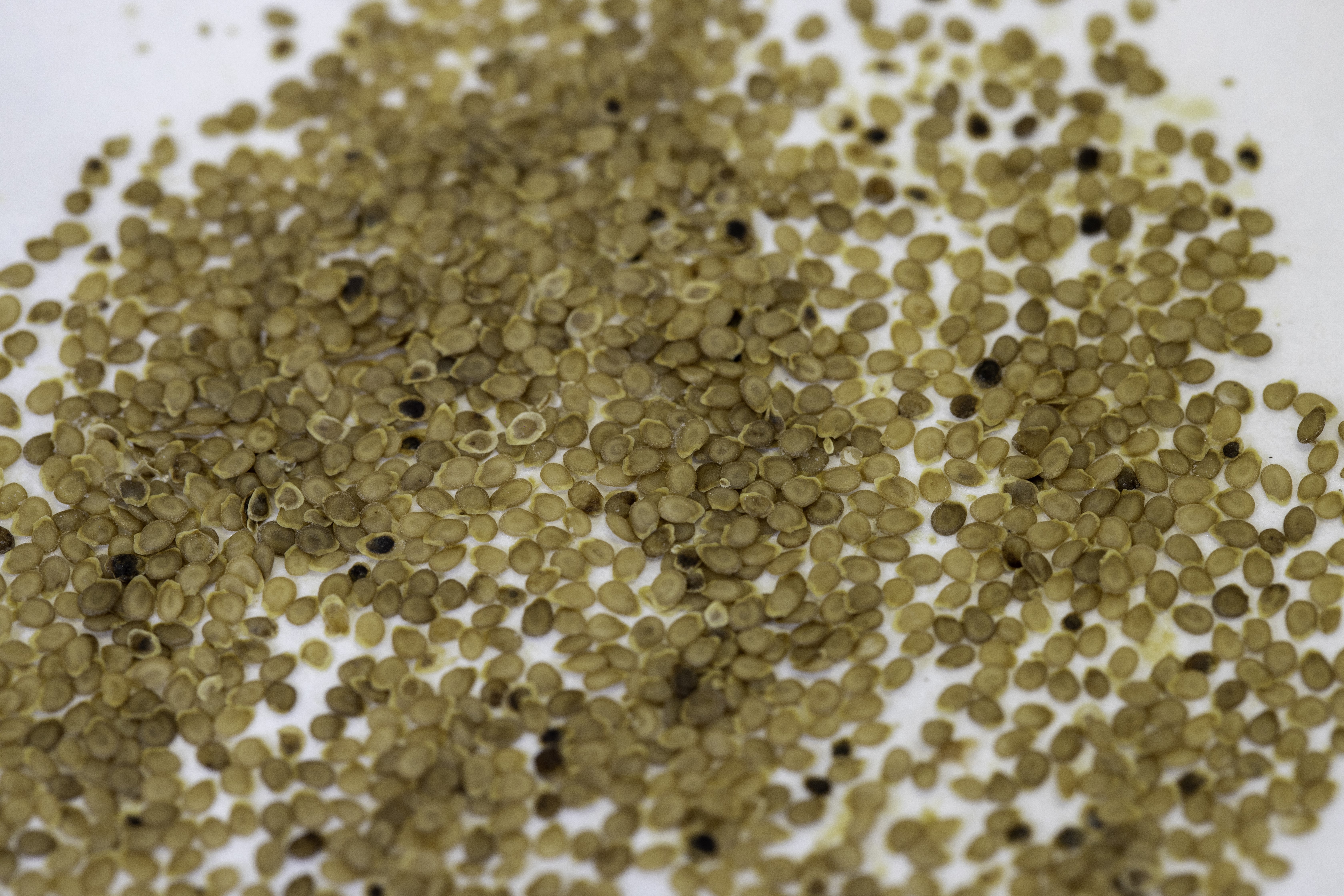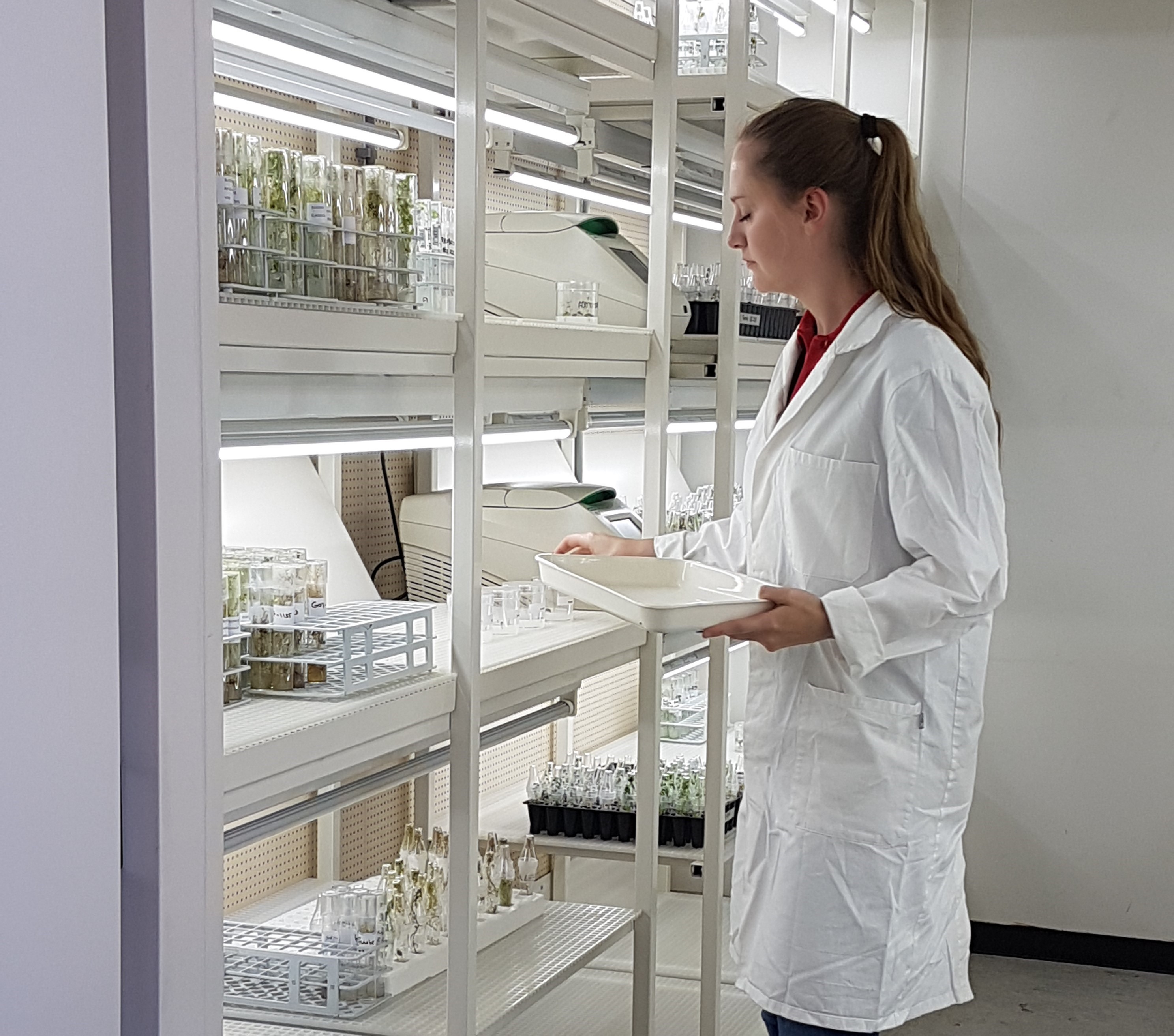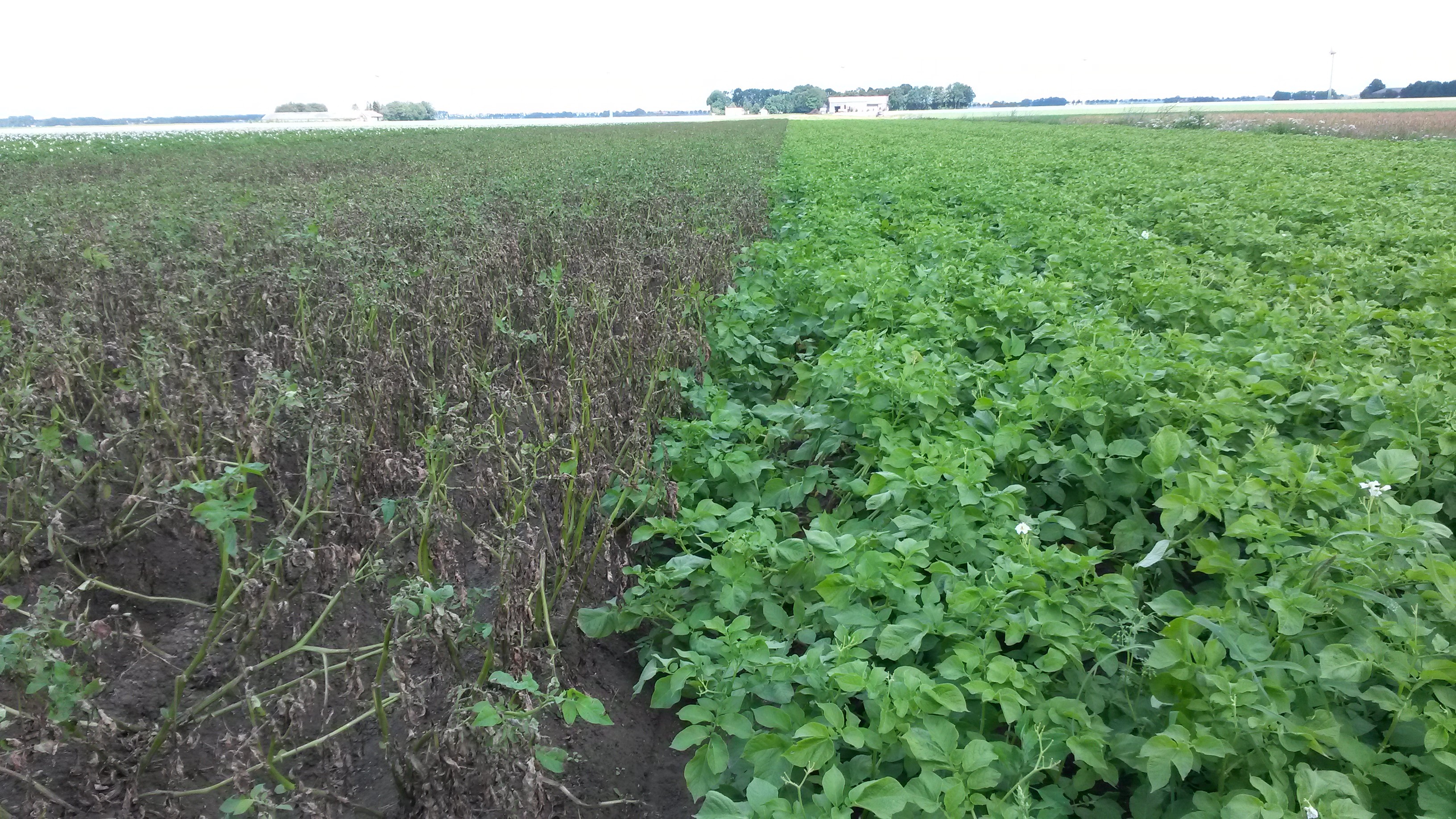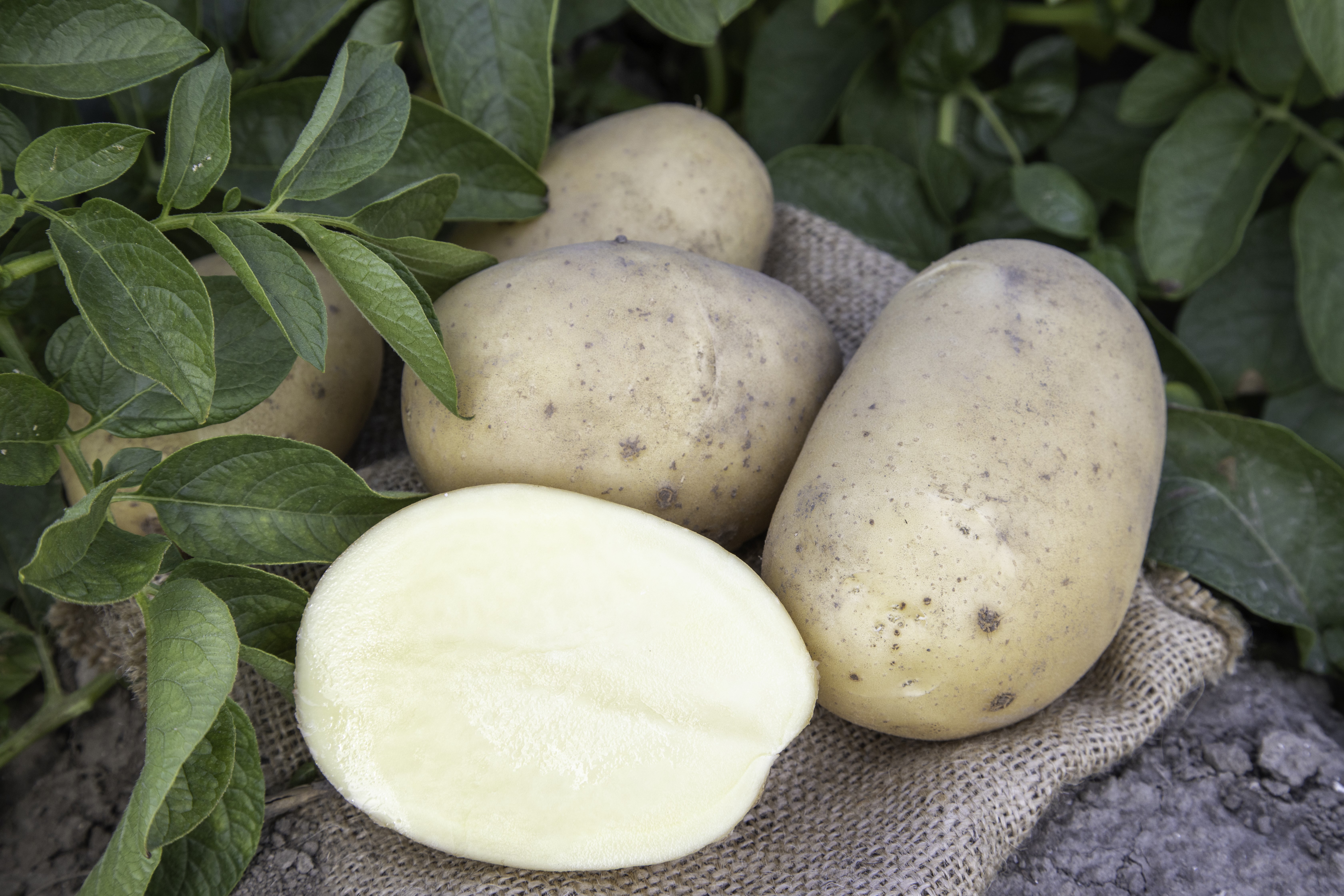AGRICO RESEARCH
CULTIVATION FOR
THE FUTURE
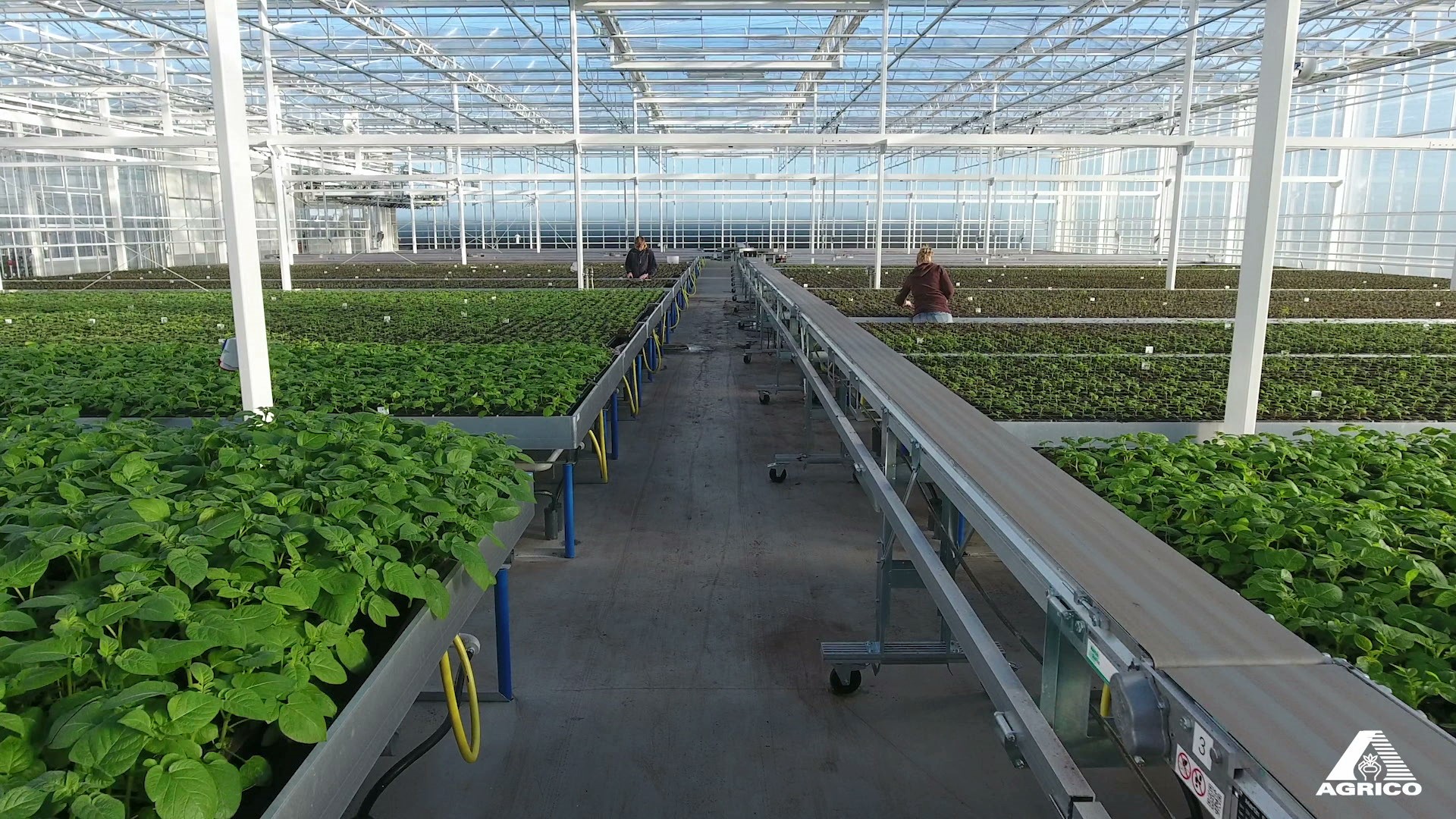
Research and development for sustainable potato cultivation
Around the world, there is an increasing demand for professionally, successfully and sustainably cultivated potatoes. Thanks to changing climatic conditions, world population growth and changing consumer demands, it’s becoming more important than ever to continue research and breeding work, both for today and for the future.
The largest part of this increased demand will have to be met by improving potato value chains, technology and innovations in plant breeding.
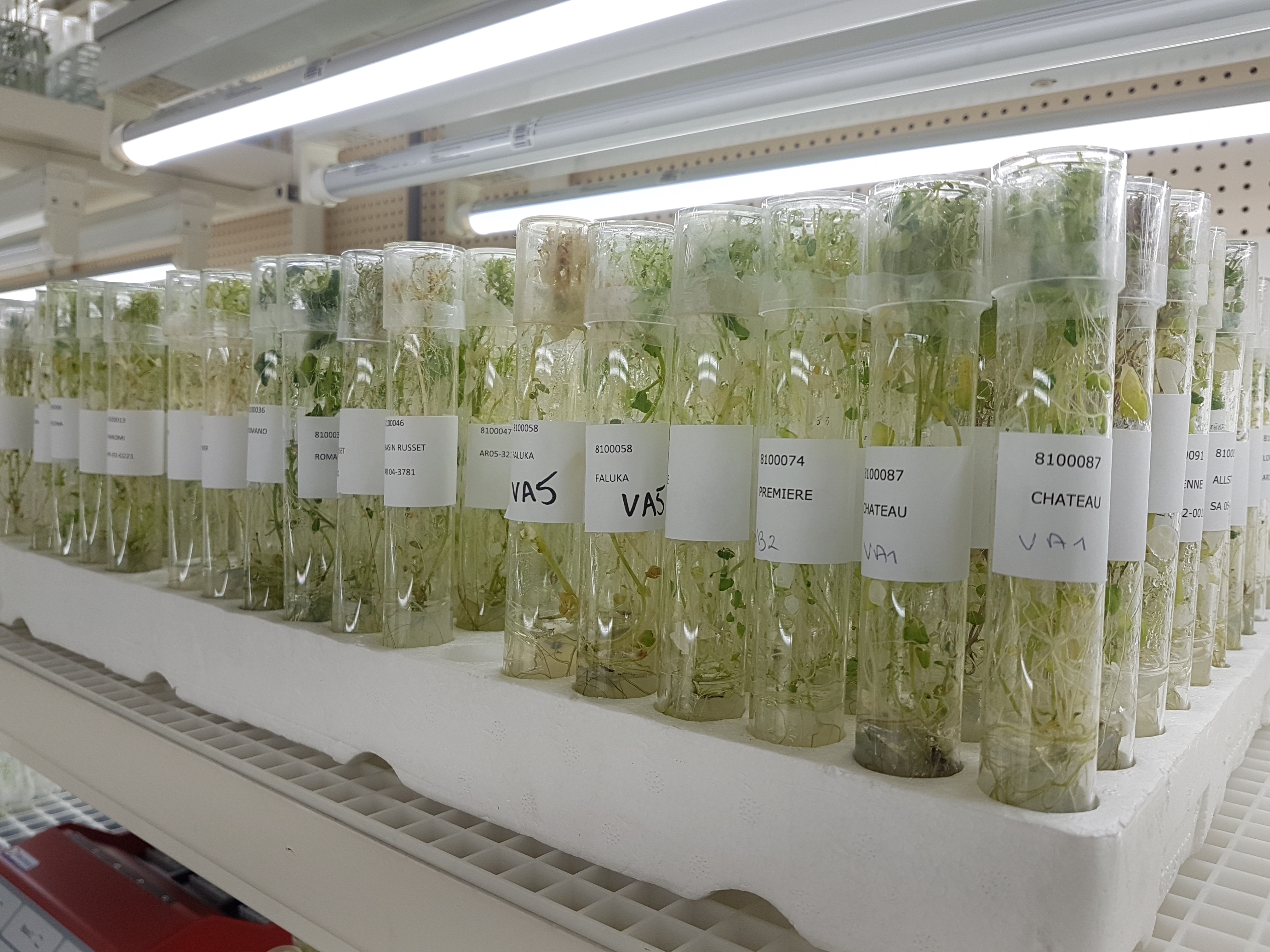
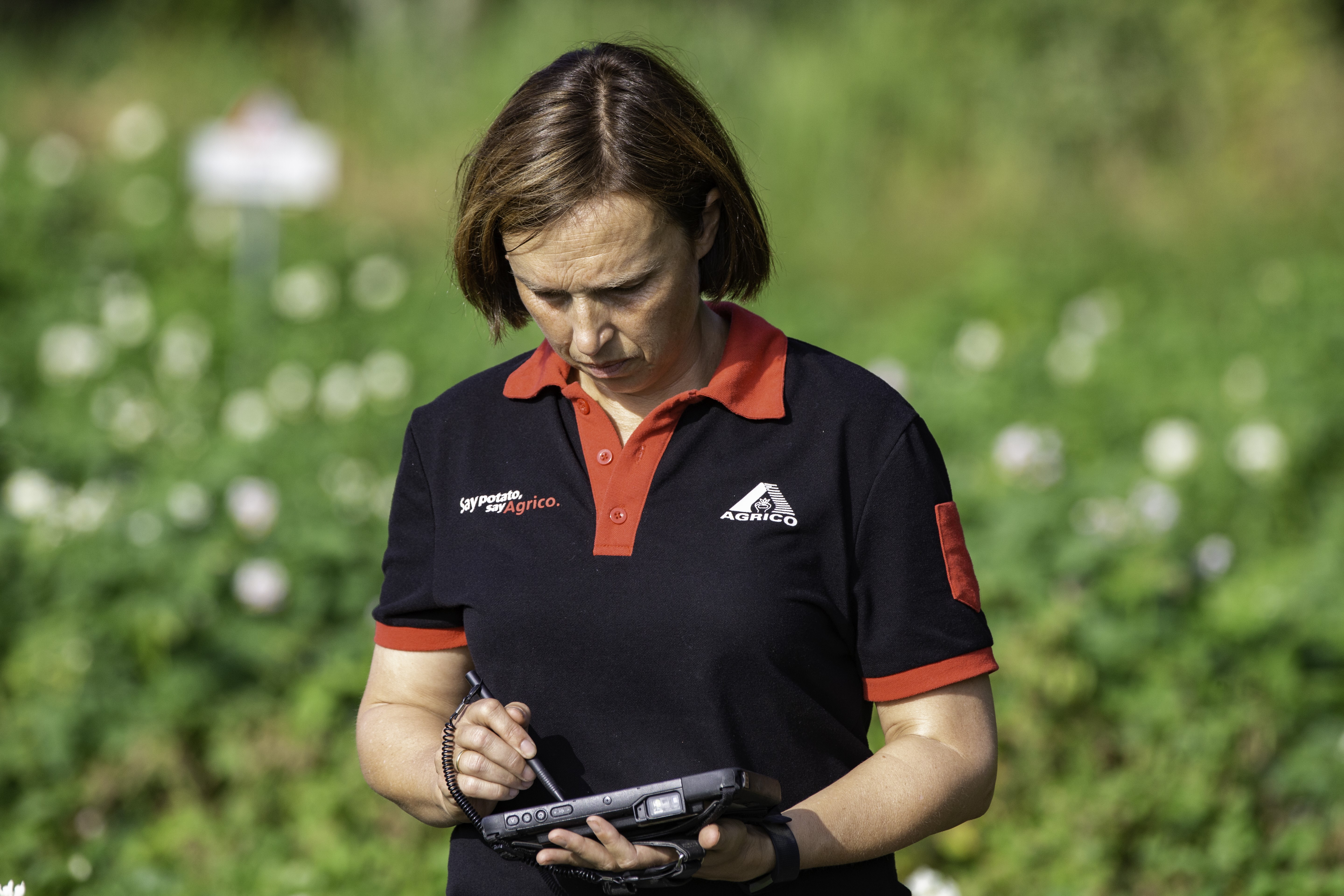
Innovative potato varieties
Agrico Research works intensively on developing new, innovative potato varieties and is the leading knowledge institute in this field. Our priorities as a research and development institute are:
With these in mind, the breeding objectives at Agrico Research are aimed at developing varieties to meet the specific wishes of growers, the processing industry and consumer demand, both now and in the future, and around the world.
The breeding objectives of Agrico
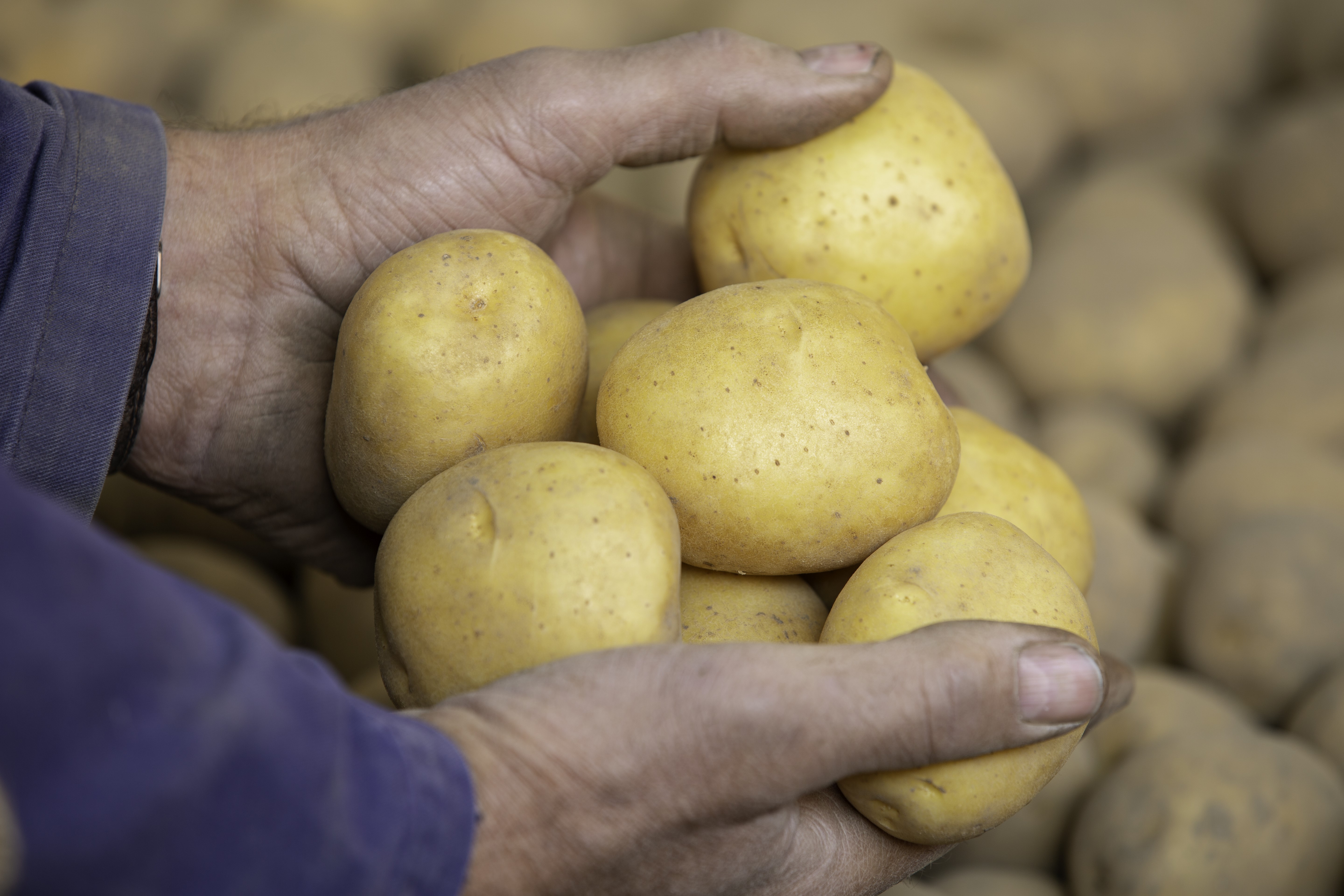
Agrico Research is continuously developing new varieties with improved properties such as maturing time, skin color, flesh color, tuber shape and cooking type. These traits are important to the grower, retailer and processing industry alike. Focusing on improving the cultivation characteristics of our potato varieties enables us to align our work closely with the needs of local markets.
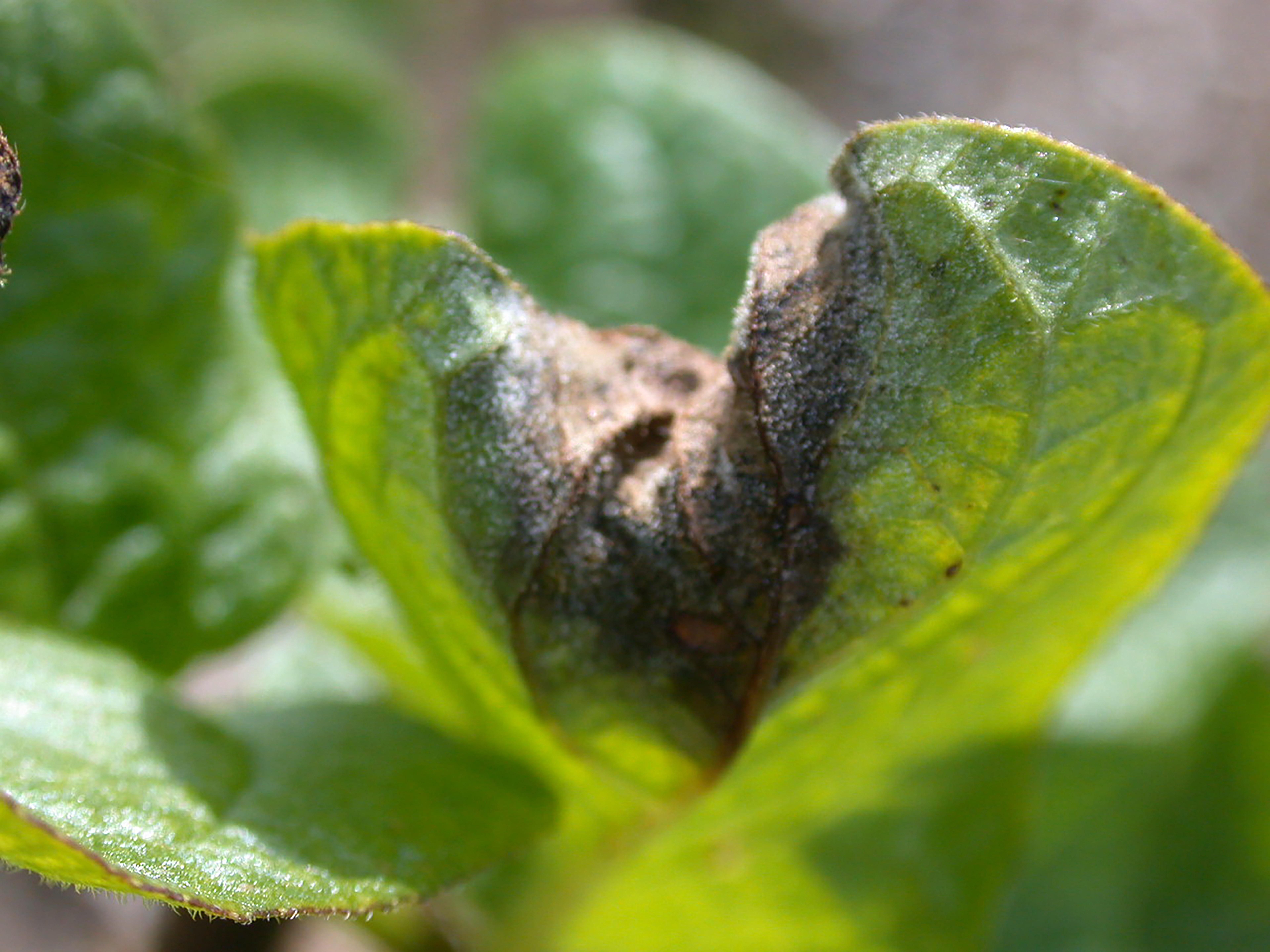
Diseases and pests significantly influence the stability of the potato yield. Breeding potato varieties that are resistant to diseases such as late blight is an important goal of our potato breeding program at Agrico Research. Our Next Generation varieties (which have natural resistance to late blight) are one of the results of our breeding processes.
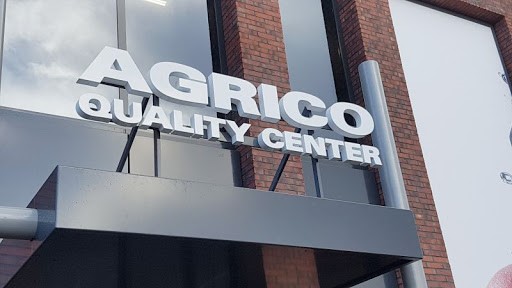
The results of the harvest and the processing ultimately determine the quality of the potato. However, quality is a complex property that can be influenced in many ways. Various parts of the potato’s DNA influence its shape, nutritious value, flavor, storage options and processing characteristics. Agrico Research prioritizes these elements in particular in the development of high-quality potato varieties.
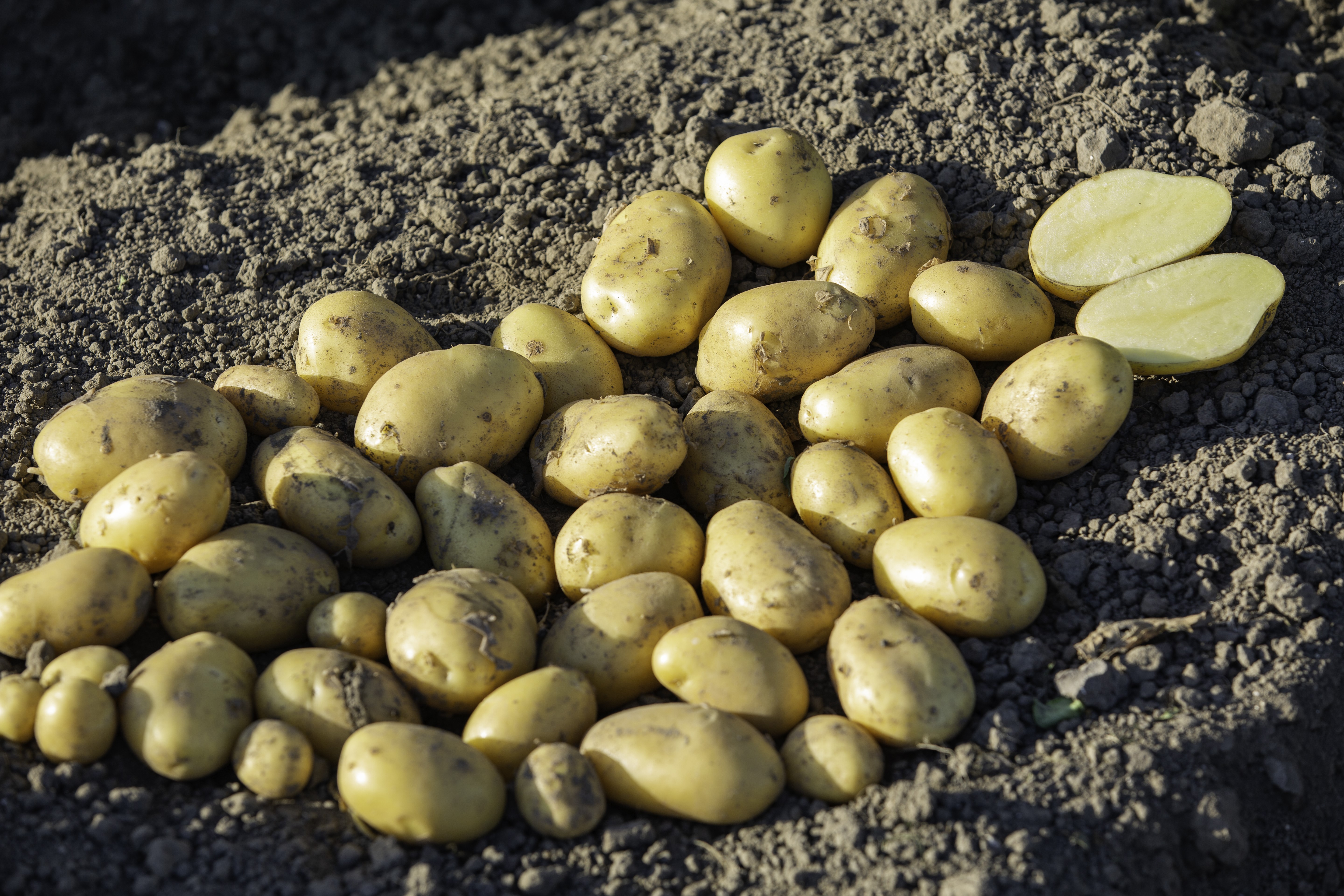
One of the priority goals in developing new potato varieties at Agrico Research is to increase the yield and achieve optimal returns for the customers. This process is guided by careful breeding of varieties to increase the harvest and minimize loss of yield.
Non-GMO
Agrico has consciously chosen to use breeding techniques that are permitted throughout the world and are not part of the public debate.
This means that all of our potato varieties have been developed using breeding methods that do not utilize genetic modification techniques.
However, Agrico does use marker-based breeding. This means that the DNA properties of individual seedlings from the breeding program are regarded as data input for selection as soon as a correlation has been established between the DNA characteristic and a variety trait. Markers are used to map the potato plant DNA, with each marker standing for a certain trait. Establishing a link between the marker and the associated trait provides you with essential information that you can use to make choices during the selection process. For example, when crossing parent plants, you can take into account the markers that stand for certain traits such as late blight resistance. After the crossing has taken place, you can examine the markers in the offspring to see whether they contain the desired properties. This enables you to use the DNA to find the plant with the right ‘fingerprint’ for the desired markers/traits.
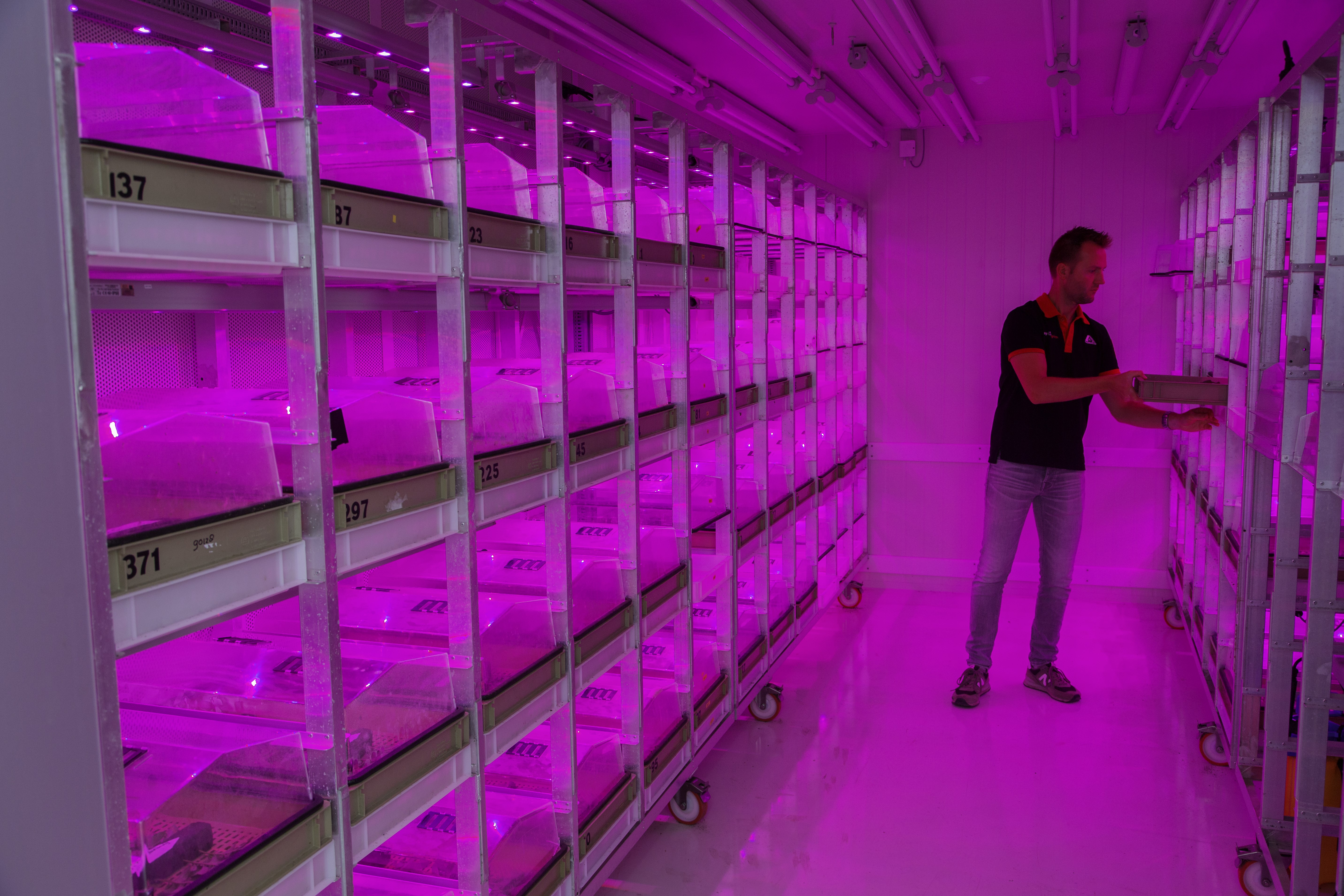
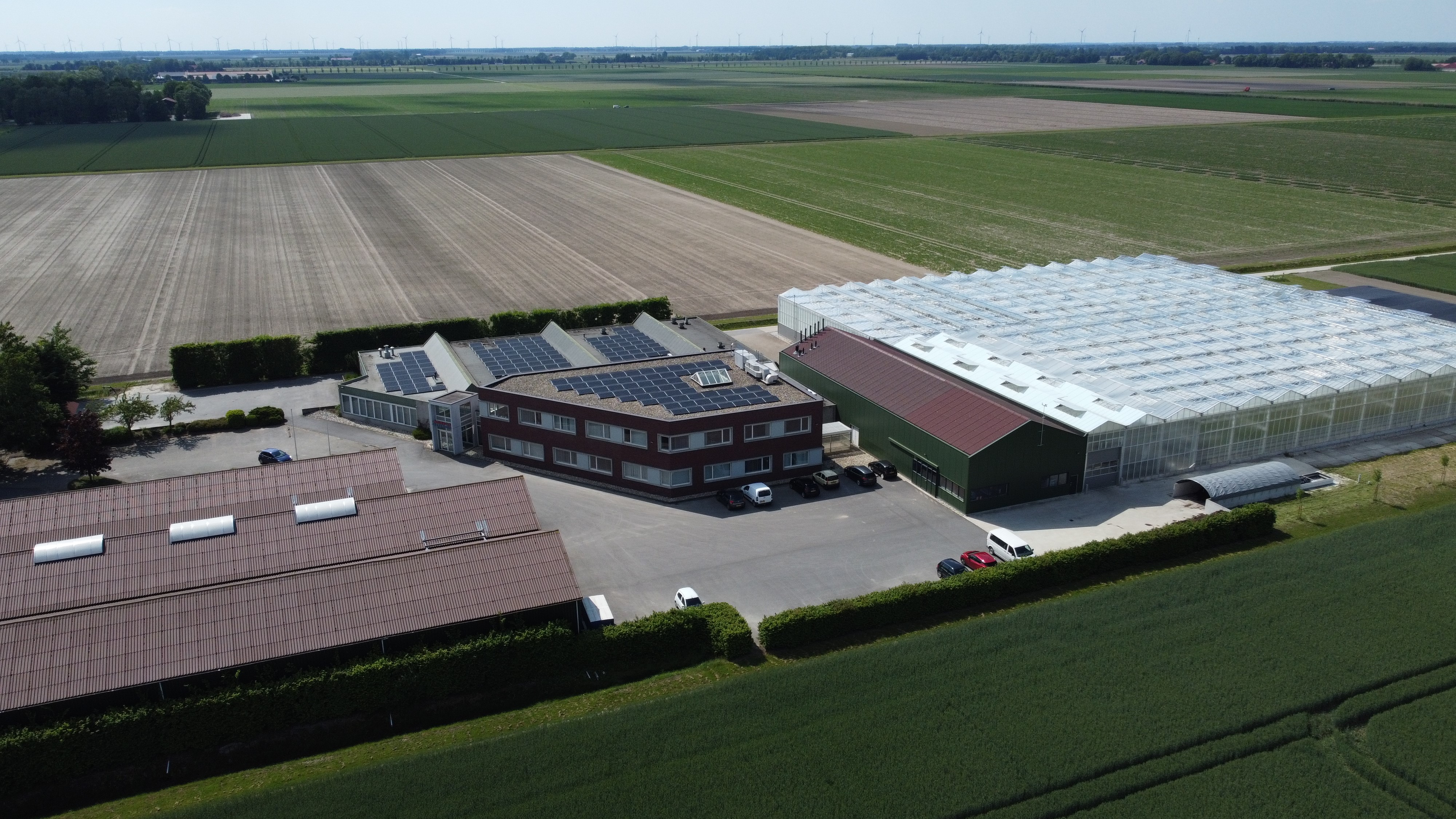
Agrico Research
Agrico Research is located in Bant (Noordoostpolder, a municipality in the Dutch province of Flevoland), and has its own 4,000 m2 greenhouse complex as accommodation for the development of new potato varieties and intensive research activities.
The Agrico Research breeding process incorporates the latest insights into genetics and breeding techniques, and is carried out in close consultation with our affiliated breeders. The breeding center provides the affiliated growers with genetic reproduction material and advice, as well as organizing centralized testing. At a later stage, Agrico Research also arranges the propagation of the selected seedlings.
The nursery consists of different laboratories that determine cultivation characteristics such as the frying quality of Fries and chips varieties, and the cooking quality of table potatoes. The laboratories also carry out research into disease resistance, using DNA marker technology to examine the desired variety properties. Many new varieties are tested each year in the 30 hectares of trial fields both locally and abroad.
Discover more
While the agricultural sector is committed to reducing the impact of crop protection products on the environment and living conditions, this does pose challenges for potato cultivation. Potato cultivation is becoming increasingly complex thanks to increasing viral load and restrictions in the use of crop protection agents, such as the ban on the defoliating herbicide Reglone and the sprout inhibitor Chloro IPC. Breeding new potato varieties for greater virus resistance is therefore becoming increasingly important.
The agricultural sector is constantly changing, and the pace of change and innovation is also high in the potato sector. Stricter legislation in the field of plant protection plays an important role in this respect. Starting from the 2020 harvest, the widely used plant protection product Chloro IPC may no longer be used for the long term preservation of potatoes. This will have an effect on the market for products such as fries.
There is a lot of discussion in the potato world about the development of potatoes from seed; in other words, the cultivation of hybrid potato varieties. True potato seed (TPS) is also a much-discussed topic. This term refers to botanical seed and not to seed potatoes. There are two different variants of TPS varieties: HIP hybrids and SIP hybrids. HIP stands for Highly Inbred Parent lines and SIP stands for Slightly Inbred Parent lines. In other words, these are hybrid potatoes from parents that are strongly inbred (HIP) or somewhat inbred (SIP).
Agrico invests a great deal into research and development every year. We believe that transparency for our members is extremely important, but we also bear the interests of our growers in mind, and this sometimes requires confidentiality. This results in an ongoing dilemma.
Late blight is the leading cause of potato disease and is a much discussed topic in the potato world. Agrico has brought a number of late blight-resistant varieties onto the market in various market segments under the name "Next Generation".
In 2019 the table potato variety Arizona set a milestone by becoming the first Agrico Research variety to be grown in the Netherlands on more than 1,000 hectares for the propagation of seed potatoes. This was a special achievement for this variety, which originated in the year 1997.

Would you like to know more about Agrico Research?
Agrico Research works intensively on developing new, innovative potato varieties and is the leading knowledge institute in this field. We work on various breeding objectives aimed at developing varieties to meet the specific wishes of growers, the processing industry and consumer demand, both now and in the future, and around the world.
If you have a specific question or would like to know what Agrico Research can do for you, please feel free to contact us.
